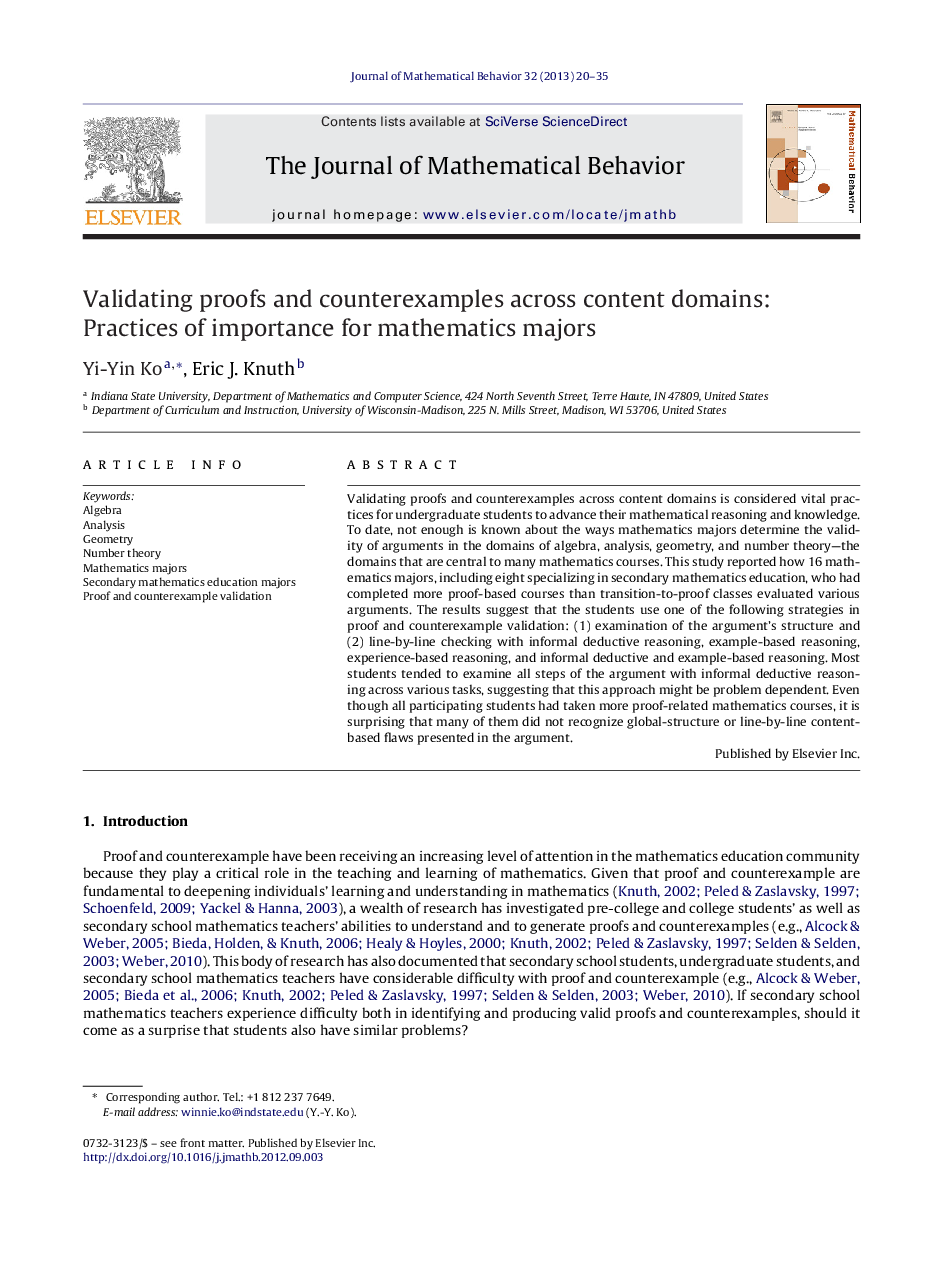| Article ID | Journal | Published Year | Pages | File Type |
|---|---|---|---|---|
| 360670 | The Journal of Mathematical Behavior | 2013 | 16 Pages |
Validating proofs and counterexamples across content domains is considered vital practices for undergraduate students to advance their mathematical reasoning and knowledge. To date, not enough is known about the ways mathematics majors determine the validity of arguments in the domains of algebra, analysis, geometry, and number theory—the domains that are central to many mathematics courses. This study reported how 16 mathematics majors, including eight specializing in secondary mathematics education, who had completed more proof-based courses than transition-to-proof classes evaluated various arguments. The results suggest that the students use one of the following strategies in proof and counterexample validation: (1) examination of the argument's structure and (2) line-by-line checking with informal deductive reasoning, example-based reasoning, experience-based reasoning, and informal deductive and example-based reasoning. Most students tended to examine all steps of the argument with informal deductive reasoning across various tasks, suggesting that this approach might be problem dependent. Even though all participating students had taken more proof-related mathematics courses, it is surprising that many of them did not recognize global-structure or line-by-line content-based flaws presented in the argument.
► This study examined how 16 mathematics majors evaluated various arguments. ► The participants had completed more proof-based courses than transition-to-proof classes. ► Most participants tended to examine all steps of the argument with informal deductive reasoning across various tasks. ► Many participants did not recognize global-structure or line-by-line content-based flaws presented in the argument.
